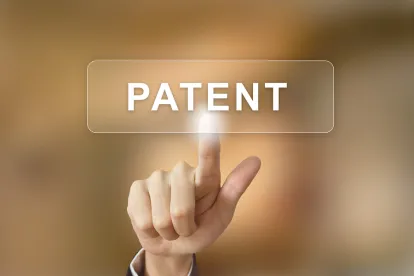Addressing inventorship and waiver issues, the US Court of Appeals for the Federal Circuit affirmed the district court’s decision to add two joint inventors to a patent, explaining that even those who contribute only to a single claim, or to one aspect of a single claim, are inventors. Vapor Point LLC v. Moorhead, Case Nos. 15-1801; -2003 (Fed. Cir., Aug. 10, 2016) (per curium) (O’Malley, J, concurring).
Vapor Point and individuals Keith Nathan and Kenneth Matheson (collectively, Vapor Point) brought suit against NanoVapor Fuels and individuals Elliott Moorhead and Bryant Hickman (collectively, NanoVapor) seeking to add Nathan and Matheson as joint inventors on two of NanoVapor’s patents. Specifically, Vapor Point alleged that NanoVapor hired both Nathan and Matheson to reengineer and develop a commercial embodiment of the system claimed in the NanoVapor patents at issue, and that NanoVapor filed these patents without consent, notice or compensation. NanoVapor countersued Vapor Point, arguing (among other things) that Vapor Point infringes the two NanoVapor patents.
Both sides also asserted various state law claims. In response to Vapor Point’s state law claims, NanoVapor asserted a number of defenses, including that Vapor Point had an obligation to assign the two NanoVapor patents to NanoVapor. Both sides later voluntarily nonsuited their respective state law claims, representing that only issues of infringement and inventorship remained.
After a four-day evidentiary hearing, the district court granted Vapor Point’s claims of inventorship and dismissed the action. With respect to the infringement claim, because NanoVapor did not join Nathan and Matheson (now deemed to be inventors), NanoVapor did not have standing to pursue this claim.
NanoVapor appealed to the Federal Circuit, arguing that the district court erred in its determination of inventorship and improperly dismissed the action without deciding whether Vapor Point had an obligation to assign the patents to NanoVapor.
With respect to inventorship, the Federal Circuit reiterated that all inventors, even those who contribute only to a single claim or one aspect of a single claim, must be listed on any patent including such a claim. Indeed, joint inventors need not physically work together or make the same type or amount of inventive contribution. Here, the Federal Circuit found substantial evidence that Nathan and Matheson each contributed to at least one aspect of the patented invention. Accordingly, the Federal Circuit agreed with the district court that Nathan and Matheson should properly be named inventors on the NanoVapor patents.
The Federal Circuit also agreed that NanoVapor waived its right to ask the district court to determine whether Vapor Point had an obligation to assign the patents to NanoVapor. In this case, NanoVapor asserted that Vapor Point had an obligation to assign only as an affirmative defense to Vapor Point’s state law claims, which were voluntarily dismissed with prejudice. After dismissal, the only remaining claims from Vapor Point’s complaint were related to inventorship. As the parties agreed, determinations of inventorship and ownership are separate issues, and ownership is not an affirmative defense to inventorship. Accordingly, voluntary dismissal of the state law claims mooted NanoVapor’s equitable defense that Vapor Point had an obligation to assign. The Federal Circuit further noted NanoVapor’s affirmative representation that resolution of the inventorship issue would dispose of the infringement issue, which amounted to a waiver of any assertion of ownership of Vapor Point’s rights.
Judge O’Malley wrote a separate concurrence to note that, regardless of whether NanoVapor waived its right to assert ownership by assignment in the two NanoVapor patents, NanoVapor would nevertheless have lacked standing to maintain an infringement action, because it had no written assignment from either Nathan or Matheson. O’Malley advocated for strict adherence to 35 USC § 261 and noted that any precedent holding that such an “in writing” requirement could be ignored must be rejected. O’Malley also acknowledged that patent ownership may be transferred by operation of law, such as by way of inheritance, but that such transfers are not “assignments” under § 261. Moreover, although state law principles may give rise to shop rights and implied-in-fact contracts, these are also not “assignments” pursuant to § 261 and may only be used as a defense against infringement. In this case, NanoVapor conceded that it had no executed written instrument requiring assignment from either of Nathan or Matheson—NanoVapor apparently drafted multiple employee agreements, but none were signed. Accordingly, any possible equitable claim of patent ownership held by NanoVapor was insufficient to permit NanoVapor to assert its infringement claim, regardless of waiver.



 />i
/>i

